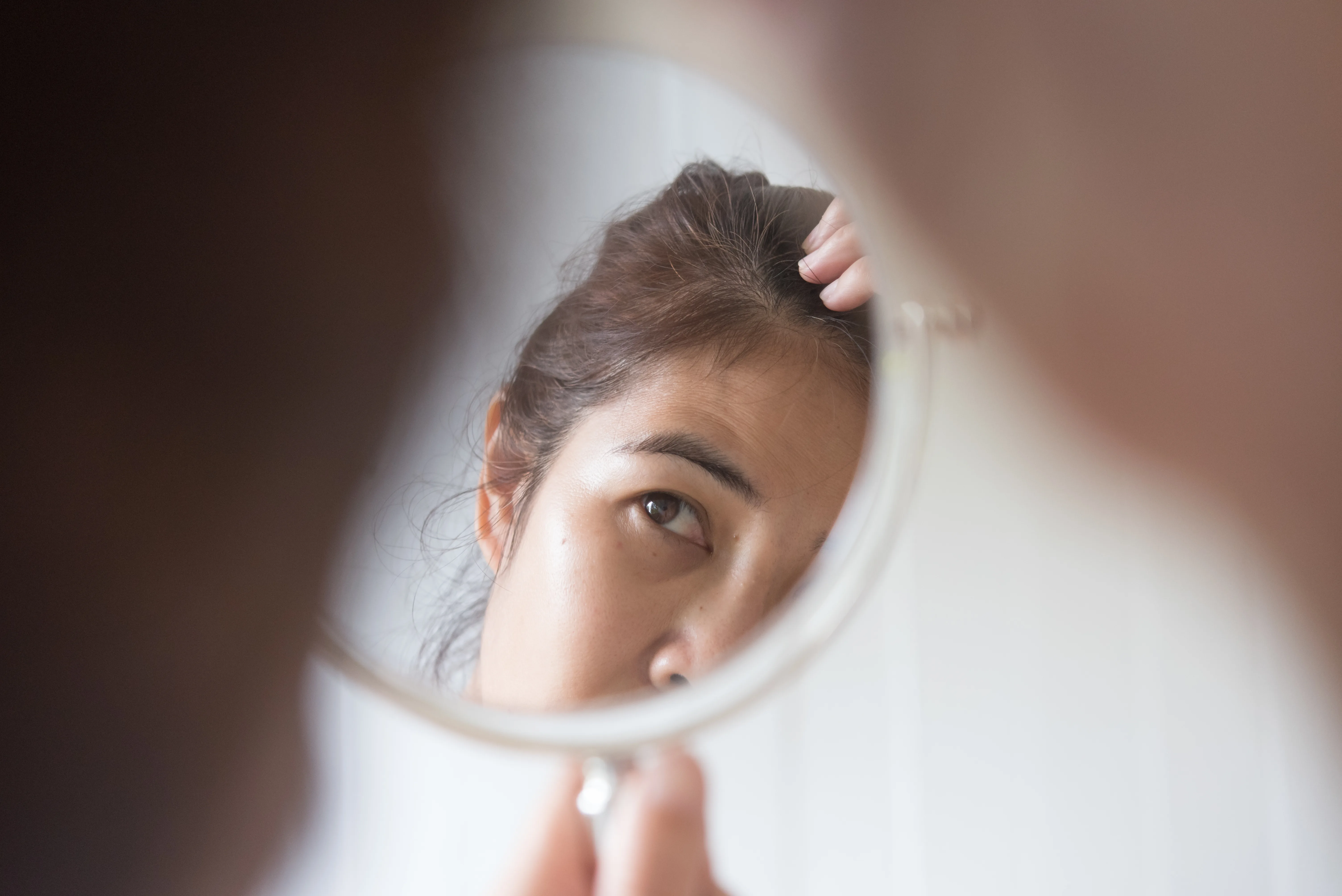Sensitive Scalp
See what causes sensitive scalp and how to treat it with our tips, from choosing the right shampoo to making a few simple changes to your hair care routine.
We often hear about sensitive skin on the hands and face, but your scalp is in fact the next most common area to experience sensitivity. Even though it’s covering a hard skull, the scalp is extremely vulnerable and can be easily disrupted from its normal behavior.
So how do you judge ‘sensitivity’ on your scalp? Well simply put, a sensitive scalp is one where you can literally feel the pain. Even using a hard brush can cause a jolt of pain to shoot through you. But that might not be enough to judge what condition you’re suffering from. Usually a sensitive scalp causes certain reactions such as redness, numbness, itching or even dryness, more evident than ‘normal’ skin

In some cases, sensitive scalp can be related to severe headaches and migraines. In these situations, your nerves become constricted, with those particular points acting extra sensitive. Even a light touch could be painful. But these are extremely rare, and like sensitive skin elsewhere on the body, sensitive scalp can be caused by a whole number of issues:
- Allergic reactions can instantly cause itching and redness, often due to chemicals in styling products and dyes that may react with your skin.
- Dry or damaged skin makes your scalp susceptible to pollutants and irritants.
- Weather change – fluctuations between excessive heat and cold can cause an itchy scalp.
- Hormonal changes within your body can change the blood circulation to your scalp, compromising the nutrients that your scalp needs.
- Stress can cause an interruption in your body system which can directly affect your head health.
- Acne or infections on your hair root and shaft can also cause you grief.
- Tight hairstyles and hairbands can pull at your skin, worsening the condition at the hair roots.
- Prolonged sun exposure can cause a sunburn that is not easily identified under the hair.
- Insect bites and lice are not things we want to consider, but sometimes they are a reason for an irritated scalp.
Symptoms Of A Sensitive Scalp
If you think that you might have a sensitive scalp, you may notice the following symptoms:
- Severe itching that is associated with flaking
- Red patches or red rashes are often a clear identifier
- A skin tightness that feels similar to a dry scalp
- Scaling and peeling of the skin happens quite often, many times associated with scratching.
One of the biggest associations with sensitive skin is the appearance of dandruff. Dandruff is caused by a fungus, Malassezia Globosa, which breaks down any excessive oil on your scalp to result in red patches, itching and white flakes. The occurrence of the flakes is enough to make anyone wonder on how to get rid of dandruff. And these could appear worse if you scratch, as that damages the surface of the scalp even more.
You can’t really ‘cure a sensitive scalp’, because that is just a sensation. What you can do is to manage the scalp problem and help prevent the symptoms from flaring up.
- First, choose the right shampoo. Sensitive scalp shampoos are designed to be gentle on the scalp with a hypoallergenic, dye-free formula. If your issue is sensitive scalp dandruff, find the right anti dandruff shampoo for your scalp.
- Avoid hot water, as this can burn your already damaged skin. Warm or cool water is ideal. Avoid the extreme temperatures, as even cold water can cause issues.
- Identify the moments that you feel the pain. Was it after you used some product? Recognizing the triggers is the best way to remove them.
- Massaging essential oils like Argan oil, can create a protective layer on your scalp and shelter it from extreme heat. These also boost blood circulation to your scalp.
- Give your styling products a rest. Keep those curlers and hair blowers away from your injured skin.
- Use Aloe Vera to bring relief to your irritated scalp, allowing its anti-inflammatory properties to reduce your symptoms.
- Avoid tying your hair tightly and in the same hairstyle every time. This allows the hair to breathe a little easy.
- When you’re in the sun, cover your hair. Don’t let your head cook.
- Before using any cosmetic or styling chemicals, do a patch test on a small part of your skin to see if there is any reaction.
- Reduce your stress levels. It sounds out of place in this list, but stress can cause fluctuations in your body rhythm and cortisol can affect your scalp health.
Making changes to your hair care routine can drastically reduce your scalp problems. Washing regularly with gentle shampoos and using conditioners is an important part of this. Dandruff is often caused by a poor hair regimen that allows excess oil to get trapped. Using an anti-dandruff shampoo like Head and Shoulders Supreme Scalp Soothing with Argan oil and Aloe Vera can immediately bring respite from any itching. Conditioners are vital in this fight, as they open up your hair strands and allow the natural oils to flow freely from your scalp. Use the Head and Shoulders Cool Menthol shampoo and conditioner to cool your scalp down while getting rid of the cause of dandruff. These can help reset the condition of your scalp, while you understand what you’ve been doing wrong. It’s not a great feeling but know that a few simple tweaks can help you forget you ever had a sensitive scalp.



